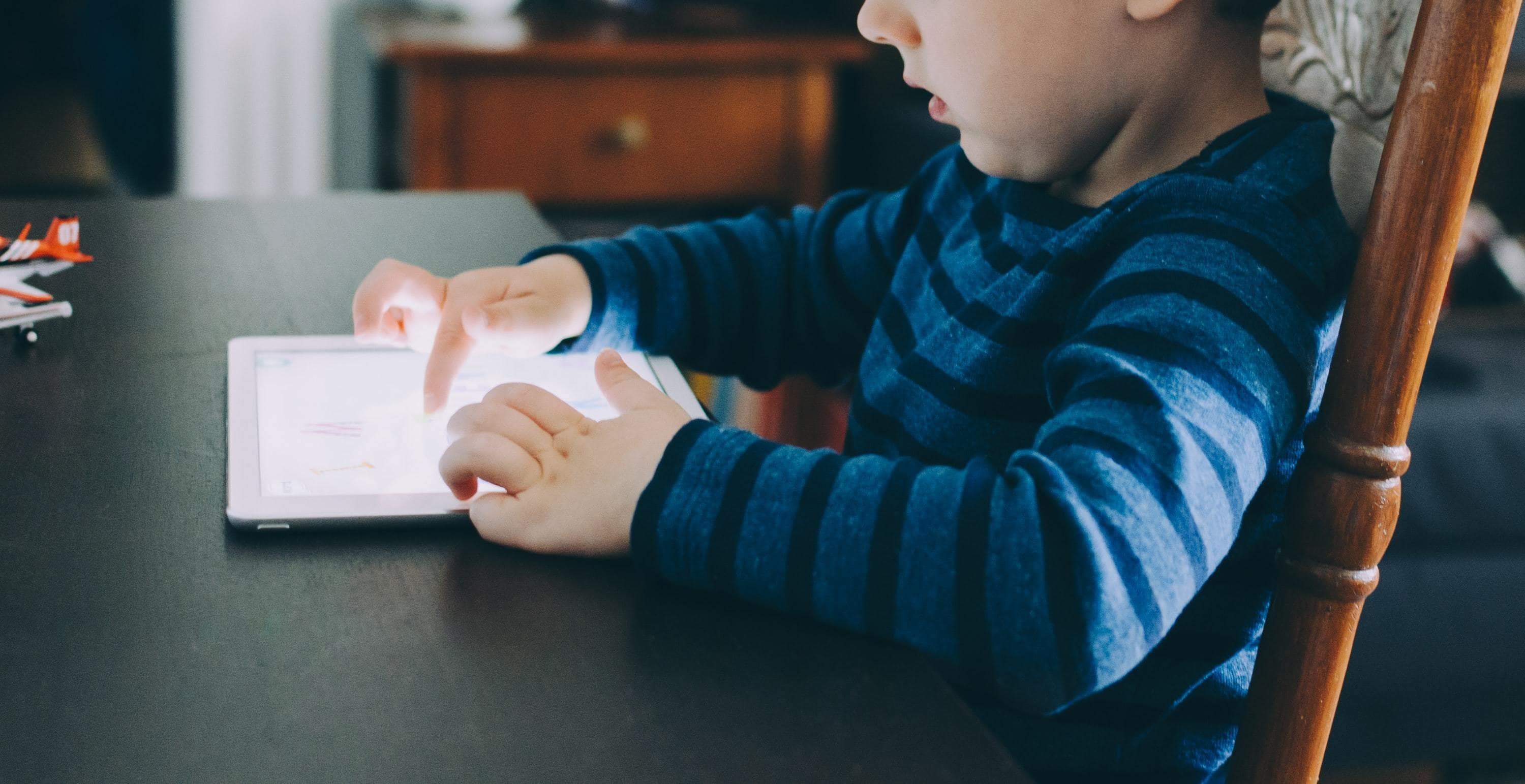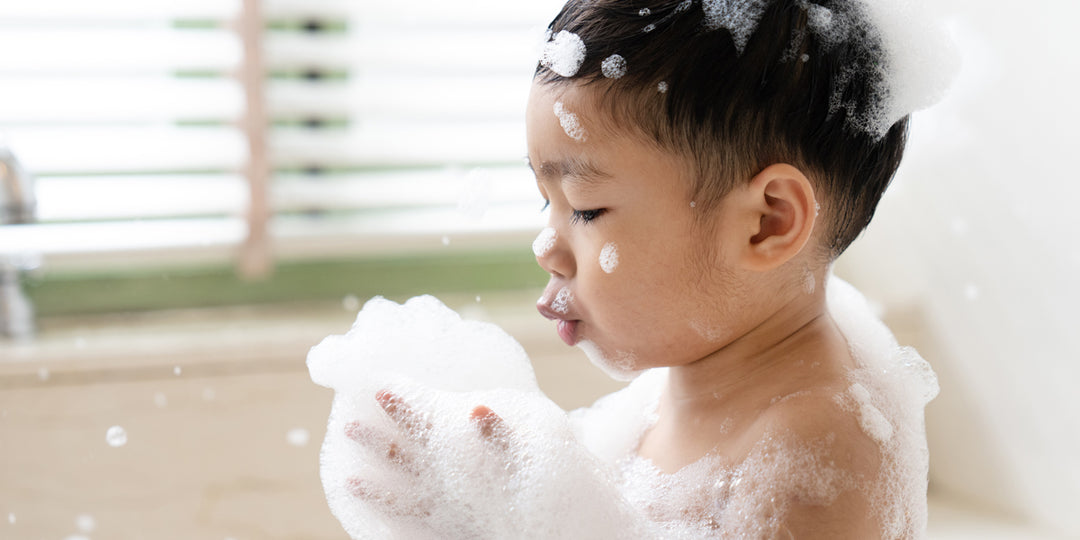Top Tips to Manage your Child’s Screen Time

By Dr Anthea Rhodes, RCH Paediatrician and Director, RCH National Child Health Poll
We are hearing it more and more. Parents are worried about the amount of time their young kids are spending on electronic devices — staring at screens, tapping, scrolling and oblivious to family interactions. And concerned that being constantly plugged in is preventing children from learning important development skills.
For many years Tiger Tribe has advocated balance in relation to screen time, encouraging parents to consider alternative activities. And the experts agree. A recent Royal Children’s Hospital (RCH) National Child Health Poll looked at screen time in homes across Australia. The RCH has kindly allowed us to share the following article, which originally appeared in RCH News in January 2018.
As we get further into the school holidays, many parents are beginning to tear their hair out. There’s only so many rounds of Lego and craft any parent can tolerate. Screen-based entertainment creeps in to save us all from the whining and complaints of bored children. It’s such a quick and easy option to flick on the TV or hand over the iPad.
The RCH National Child Health Poll recently found that almost all Australian teenagers, two- thirds of primary school-aged children and one-third of preschoolers now own their own tablet or smartphone. And lots of parents told us that excessive technology use often results in arguments and challenges in their home.
The health impacts of too much screen time in children are serious and include unhealthy eating, weight gain, vision problems, sleep problems and effects on mood and mental health. Current National Guidelines suggest that children aged two to five years should have no more than an hour of sedentary screen time a day. And children aged five-18 years should have no more than two hours. Children under two years of age ideally should avoid the screen altogether.
Summer school holidays are a great time to try to change habits. The weather is good for getting outside, and time away from school means no screen-based homework. Here are some tips to help your kids unplug these holidays.
Decide what’s right as a family
Get all parents (and older kids) on board. You’ll be more likely to get your children’s buy-in if you come up with rules together. It’s important that all parent-figures are on the same page. Parent conflict over technology use is one of the main reasons a new plan can fail. The role of screen entertainment in each household will be different, depending on the needs of your family and the age of your kids. Some families find it helpful to create a ‘screen-free’ schedule.
Turn off the background TV
Children absorb media, even if they aren’t specifically paying attention. Bad language and violence affects them, even if they are not directly watching. Try using background music instead of the TV.
Make the bedroom a screen-free zone
Take all TV and computer screens out of kids’ bedrooms. Have a central place where everyone’s smart phones and screen-based devices can be kept at night. Screens can affect sleep onset and quality. Have your children turn off the screen at least one hour before bed.
Screen-free meal times
Meal times are a great chance to engage and chat as a family. Turn the TV off and make a rule no smartphones or iPads at the table. That goes for parents and grandparents too.
Plan alternative entertainment!
Screen time is a habit. Like any habit, it will be hard to break at first. You will need to plan lots of alternative entertainment for your kids. If you take away the screen, they will be looking for something else to do! It may take a while for them to get used to occupying themselves. As a parent you will need to engage and play with your child more when they put the screen away. Consider all the things people did for fun before the influx of screens. Craft, puzzles and playdough are great for younger kids. Board games, books and sporting activities for older children. Encourage your kids to play outside. Plan some day trips or family activities.
Co-view with your kids
Of course, media and technology are a great source of entertainment, and will form part of the school holiday fun for most families. When your kids are spending time on the screen, try to choose high-quality and age appropriate programs or games. For tips on this visit our website. And when possible, watch and play with your kids, as co-viewing makes screen time a more social and positive experience for children.
Mind your own screen time
Last but not least, lead by example. As parents we are our children’s greatest role models. If they see us constantly looking at our smartphone or playing computer games, they will want to do the same. Try to limit your own screen use when spending time with your children. This is a challenge I battle with myself!
Technology is a useful and valuable part of life for children and families today. But the health impacts of excessive screen time are real, and many parents are looking for a way to find a healthy balance. Hopefully these tips will help you to encourage your kids to take a break from the virtual world these school holidays and experience the one that waits outside your door.
About the Royal Children’s Hospital National Child Health Poll
The Poll is a quarterly, national survey of Australian households shedding new light on the big issues in contemporary child and adolescent health – as told by the Australian public. The poll is funded through The Royal Children’s Hospital Foundation. The project protocol has been approved by The Royal Children’s Hospital Human Research Ethics Committee.
About Dr Anthea Rhodes
The RCH National Child Health Poll is directed by Dr Anthea Rhodes, a paediatrician and medical educator. She has clinical interests in the health needs of the vulnerable child, with expertise in child development and behaviour. Dr Rhodes undertook her paediatric training at The Royal Children’s Hospital, Melbourne, where she has worked since 2004. She has postgraduate training in medical education and is a lecturer and co-ordinator for the Child and Adolescent Health component of the Doctor of Medicine at the University of Melbourne. Dr Rhodes has been involved in a number of research projects across the fields of health service delivery, immigrant health practice and health professional education. She has been the Director of the RCH National Child Health Poll since its first release in December 2015.




Leave a comment